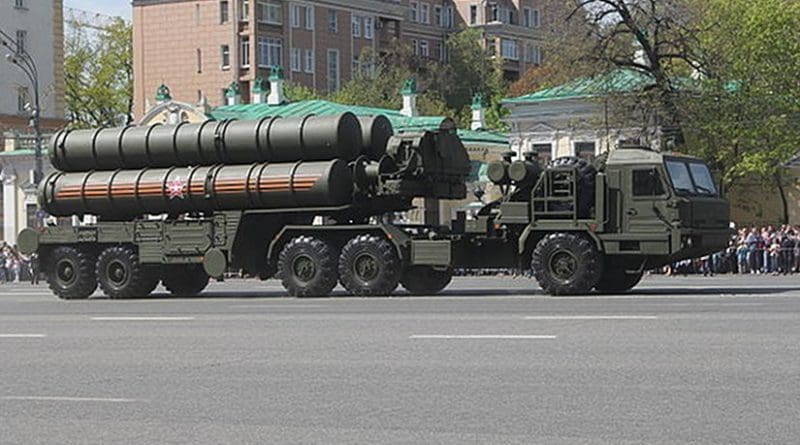Erdogan Says Turkey Not Backing Out Of S-400 Missile Deal With Russia
By RFE RL
(RFE/RL) — Turkish President Recep Tayyip Erdogan said his country is determined to go through with a deal to purchase S-400 missile defense systems from Russia, despite opposition from Washington.
“As for the S-400, the deal is done, and it is out of the question to go backwards…and perhaps after the S-400, we will move onto the S-500,” Erdogan told Kanal 24 television on March 6.
The U.S. State Department on March 5 again warned Turkey about going ahead with the purchase of the Russian air defense system, adding that Washington might reconsider giving Ankara access to the advanced F-35 fighter jet program if it buys the Russian S-400 system
The United States has long said the S-400 is incompatible with NATO-based weapon systems and is part of Russian efforts to disrupt the alliance.
“We’ve clearly warned Turkey that its potential acquisition of the S-400 will result in a reassessment of Turkey’s participation in the F-35 program and risk other potential future arm transfers to Turkey,” State Department spokesman Robert Palladino said.
The United States had agreed to sell 100 of its latest, fifth-generation F-35 fighters to Turkey, but has so far delivered only two of the aircraft. Congress last year ordered a delay in future deliveries.
Washington has also said it could withdraw an offer to sell Turkey the U.S. missile defense equivalent — the Patriot anti-missile defense system.
Russia media reported that Turkey intended to buy four S-400 units for a price of $2.5 billion.
Ankara has said it has already paid the bulk of the price for the S-400s and that the systems are expected to arrive in November.
Erdogan also struck back at Washington’s decision to withdraw trade privileges from Turkey, saying that “no one should try to make us toe the line with such measures.”
The U.S. move, announced on March 5, will also end a preferential trade program with India and set tariffs on some goods.

